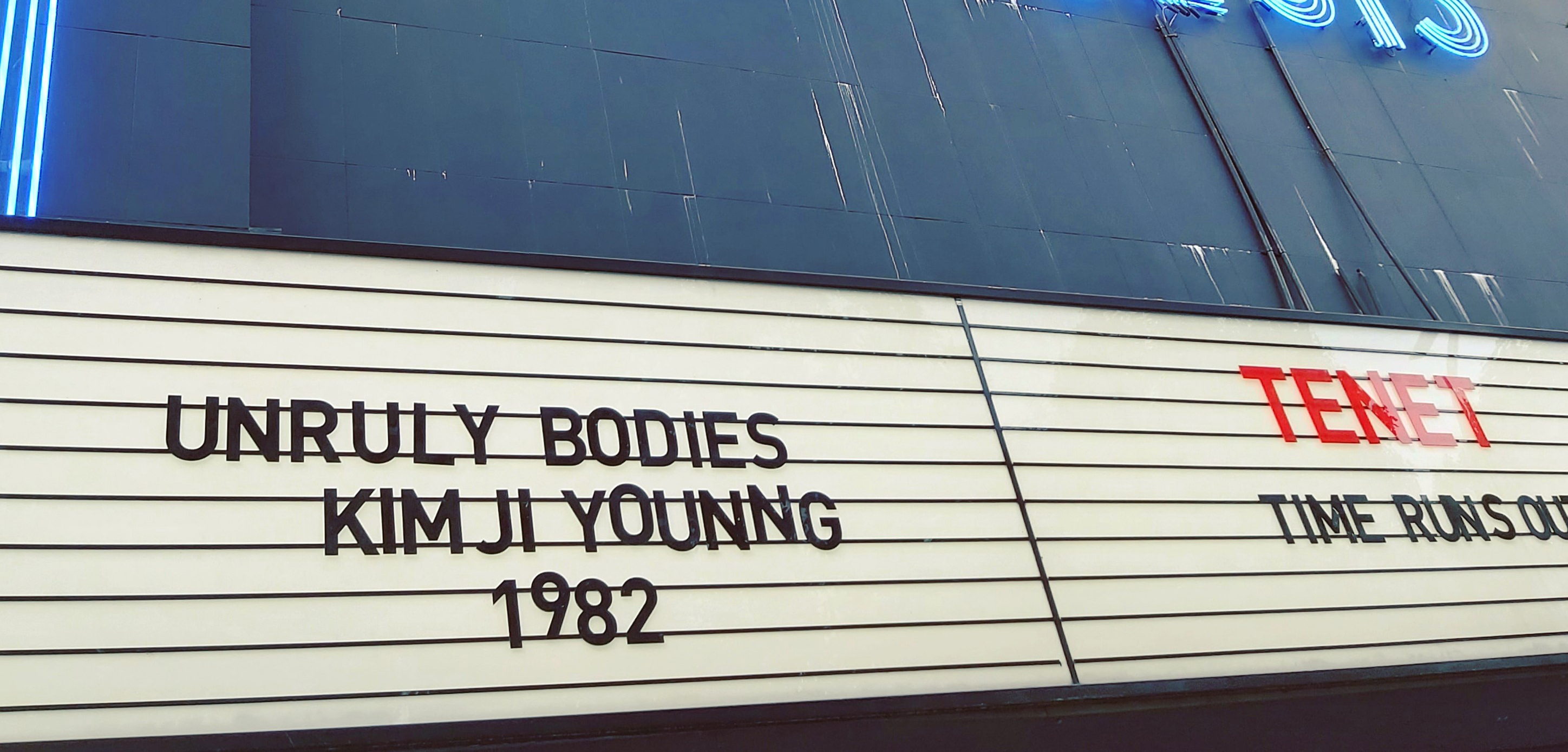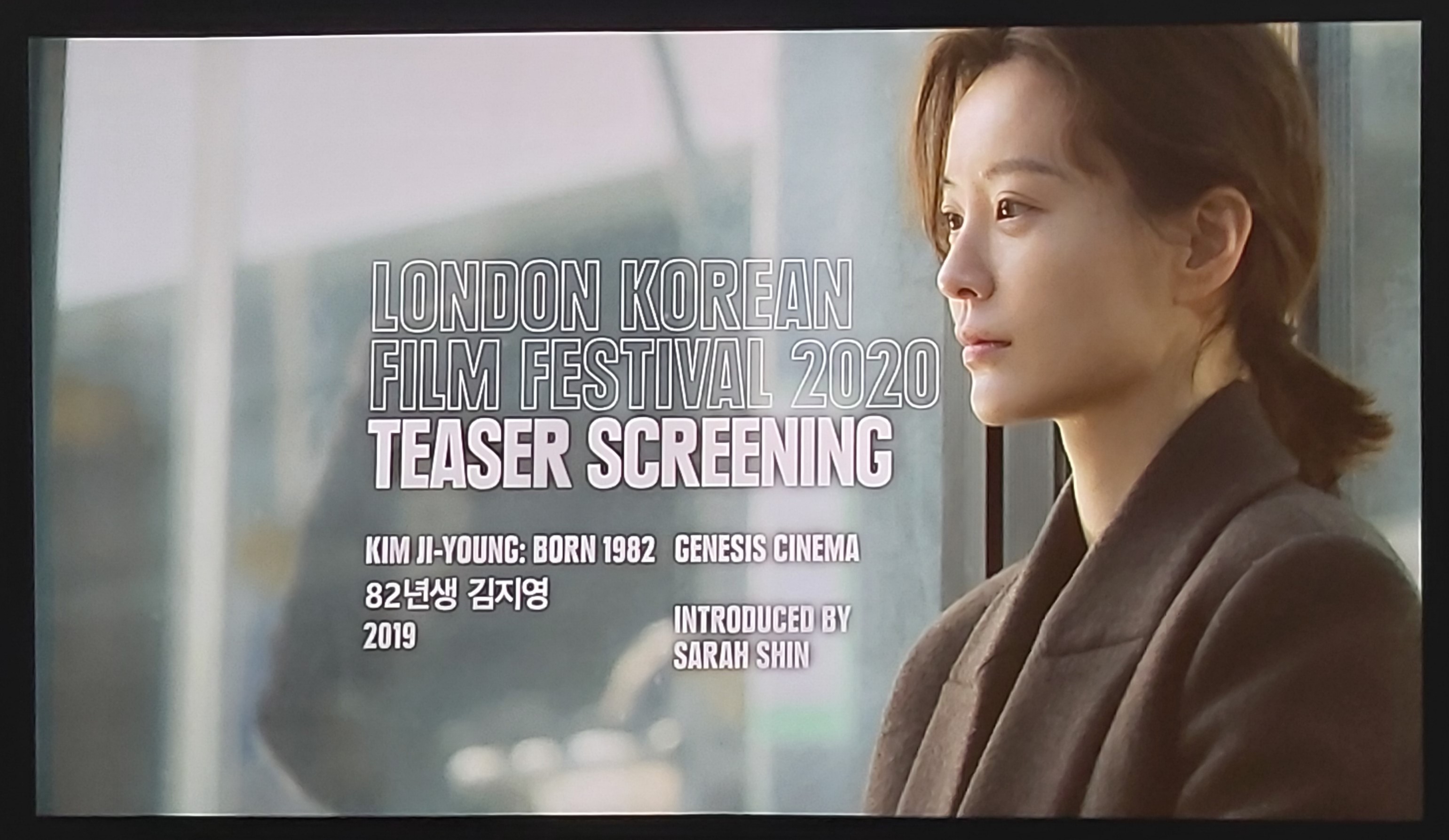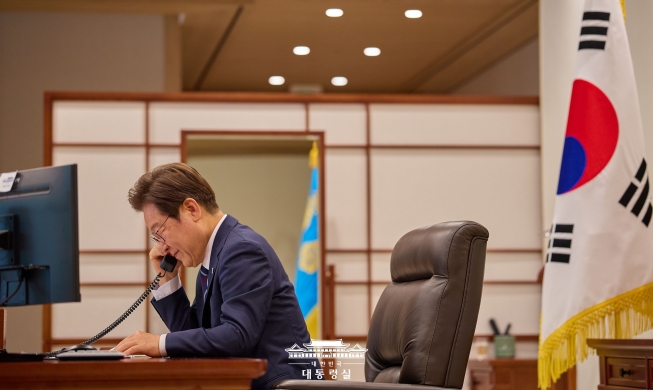- 한국어
- English
- 日本語
- 中文
- العربية
- Español
- Français
- Deutsch
- Pусский
- Tiếng Việt
- Indonesian
By Honorary Reporter Marianna Szucs from Hungary
Photos = Marianna Szucs

Genesis Cinema in London was the venue for the Sept. 10 opening of the annual London Korean Film Festival. (Marianna Szucs)
The London Korean Film Festival on Sept. 10 at Genesis Cinema opened with the screening of "Kim Ji-young, Born 1982," a movie based on novelist Cho Nam-joo's international bestseller.
The theater's main screening hall was full of enthusiastic viewers anticipating a unique experience, and the organizers guaranteed a safe environment for everyone. Social distancing was ensured from the entrance to seats, everyone's temperature was taken, hand sanitizer was made available and everyone had to wear masks.
Sarah Shin, a writer and columnist for the British daily Guardian, gave an introduction before the screening and three members of the audience won a copy of the novel.
I highly looked forward to this screening as I loved the book and was curious how the film would convey the novel's powerful message. Cho's work has stirred both praise and controversy in Korea for its bold expression of women's issues, especially gender bias and sexism. It has also been called the most important feminist novel in Korean.
The film had a different vibe than the book, portraying the novel's every moment, gender bias and the struggle of modern women in society but in a far more gentle and subtle way. Thus the movie created a more universal representation of the issues women face not only in Korea but the world over. What made the cinematic adaptation outstanding was its ability to make all women relate to the protagonist's life.

The London Korean Film Festival opened on Sept. 10 with the Korean feminist blockbuster "Kim Ji-young: Born 1982." (Marianna Szucs)
The film also raised awareness of mental health issues, a taboo in many countries as well as Korea, realistically presenting Ji-young reaching out to a psychiatrist for help and the struggle and uncertainty of she and her husband.
While the novel's ending is rather shocking and pessimistic, the film concludes with a message of pure optimism: If you have supportive surroundings of family, friends, workplace and professional help and are determined to pursue your dream, you can do it.
This message could not be delivered without Ji-young's husband Dae-hyeon, an example of the modern man. He is caring; worries about his wife but considers her an equal partner; prepares to sacrifice his career to care for their child and support his wife; signs up for paternity leave; and initiates psychiatric treatment for Ji-young.
More importantly, Dae-hyeon ensures that this film not only has a feminist theme but also promotes awareness of mental illness and the concept of the modern man.
I found actors Jung Yu-mi (Ji-young) and Gong Yoo (Dae-hyeon) simply mesmerizing in their performances. Their chemistry and care for each other shined through the screen and their acting skills were a huge bonus for this amazing film. I was also impressed with Kim Mi-kyung, who plays Ji-young's mother Mi-sook and was in several of the film's most heartbreaking scenes.
enny0611@korea.kr
*This article is written by a Korea.net Honorary Reporter. Our group of Honorary Reporters are from all around the world, and they share with Korea.net their love and passion for all things Korean.
